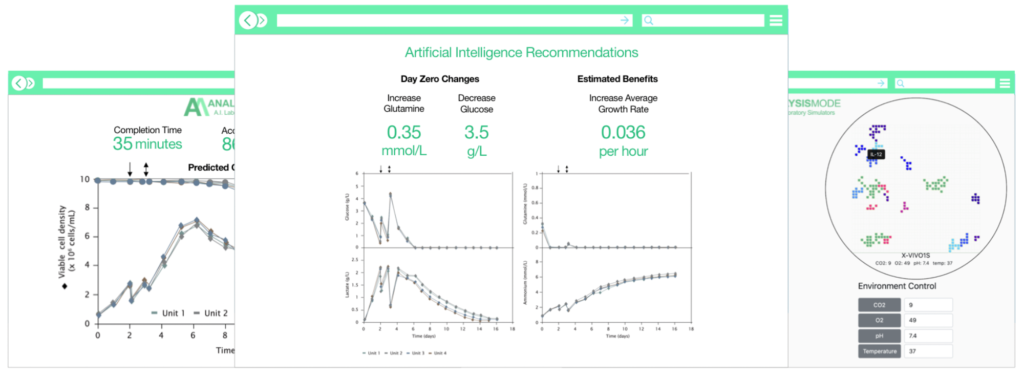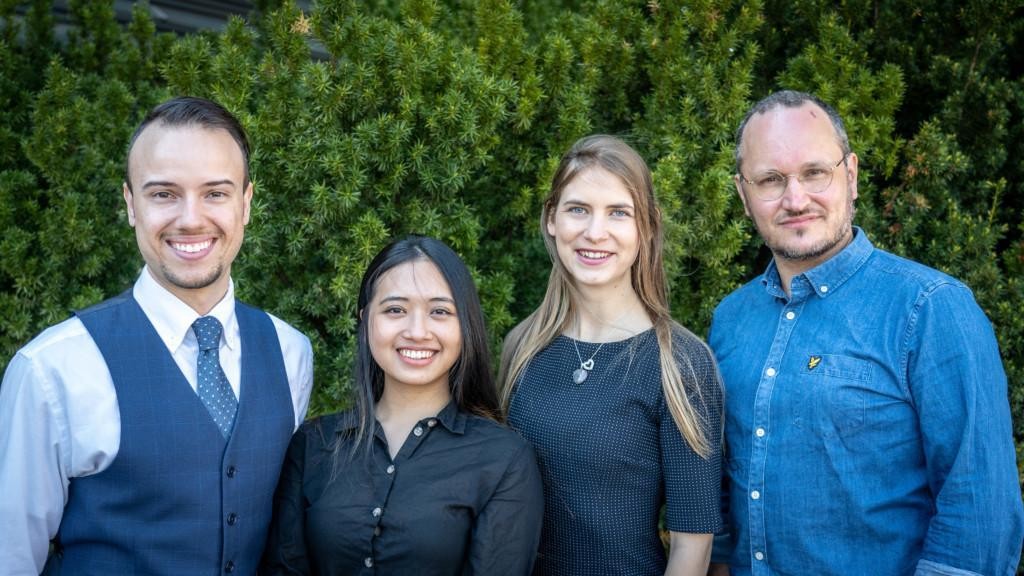AnalysisMode speeds up scientific discovery

For AnalysisMode, the above seemed like an intriguing possibility. Instead of using hundreds of hours per year doing manual experiment data analysis, one could unleash the power of AI – and secure accurate results in a matter of hours.
So how does it all work, then? With AnalysisMode, scientists can use past experiment data, usually in the form of spreadsheet datasets, as input for the startup’s AI. AnalysisMode can train the AI based on this data, in order to predict and design new experiments.
“With our solution, you can predict bench experiments before making them,” sums up Tiago Sampaio, co-founder and R&D Director of the company that was started in 2017.
Five times more discoveries
In this undertaking, one uses – in lieu of an actual bioreactor – a virtual bioreactor, a digital twin of the real thing used in a lab.
“Our virtual bioreactor supports experiment simulations in different modalities, such as CHO cells, T-Cell, Viral Vectors, and more can be added at the request of the customer.”
The AnalysisMode software can run tens of thousands of simulations based on the input data provided by the scientist, discovering more “recipes” for cell culture experiments.
“From simple text data, we manage to predict molecular-level properties,” Sampaio explains.
Sampaio says that scientists using AnalysisMode’s solution are able to rack up five times more discoveries, while saving around €250,000 in annual biomanufacturing and research costs (per 10-people bench science team).
Opening the AI “black box”
According to Sampaio, the virtual model has several attractive qualities from the perspective of the scientific community. First, it works also for small data, which is useful when dealing with novel diseases, for example.
“Second, our AI technology is capable of explaining each prediction – in human language, instead of mathematical formula, and it is adaptable, meaning you don’t need to retrain a whole AI every time new data is added.”
Finally, under this model, the bench scientist is able to understand why the AI makes every single prediction – and work is able to proceed that much smoother.
“We opened the AI black box into a transparent interface to allow for this,” reveals Sampaio.

AnalysisMode team members from left: Tiago Sampaio, Mia (Minh Anh) Le, Milda Dapkeviciute and Teppo Hudsson. Recently, Belma Alispahic has joined the company, leading AnalysisMode’s scientific team.
Health hackathon champion
In addition to perfecting their AI solution, AnalysisMode has been busy making a name for itself in hackathon circles. In 2020, the company won five HackTheCrisis events and was a finalist at EU vs Virus. Previously, the company has also won the Finnish Ultrahack. This year, the company won EU’s Data 4 Healthy Recovery hackathon and was recently chosen as the winning team in the EU Data 4 Healthy Recovery Accelerator.
What’s the secret behind such a stellar performance?
“I believe it is a combination of domain knowledge and determination that wins hackathons. We go all-in,” Sampaio says with a grin.
Working towards affordable cures
Sampaio, a Brazilian native, is currently cooking his innovations under the Northern Lights – in Rovaniemi, Finland, above the Arctic Circle. He has a vision where virtual lab tools take cell-based treatments to another level entirely – finally conquering disease. Having lost his grandfather to cancer last year, Sampaio acts with a sense of urgency:
“There are threats out there similar to COVID-19 and we must prepare for those threats. Obviously, affordable cure for disease is a major part of this,” he says, adding that harnessing the full abilities of AI can provide humanity with the firepower it needs to meet these challenges.
“For example, with cell therapy, the cost can be as much as one million euros per just one patient right now. Using AI, we can cut the price by half.”
AnalysisMode is one of the Health Incubator Helsinki’s Batch II companies – and Sampaio says that networking within the program has already yielded great contacts.
“The incubator is also showing us participants what are the concrete steps we need to take in order to go forward.”

Name: AnalysisMode
Product: AI solution allows researchers to predict bench experiments before making them.
Founded: 2017
Team size: 13
Target customer/market: Research community
Text: Sami J. Anteroinen
Photos: AnalysisMode